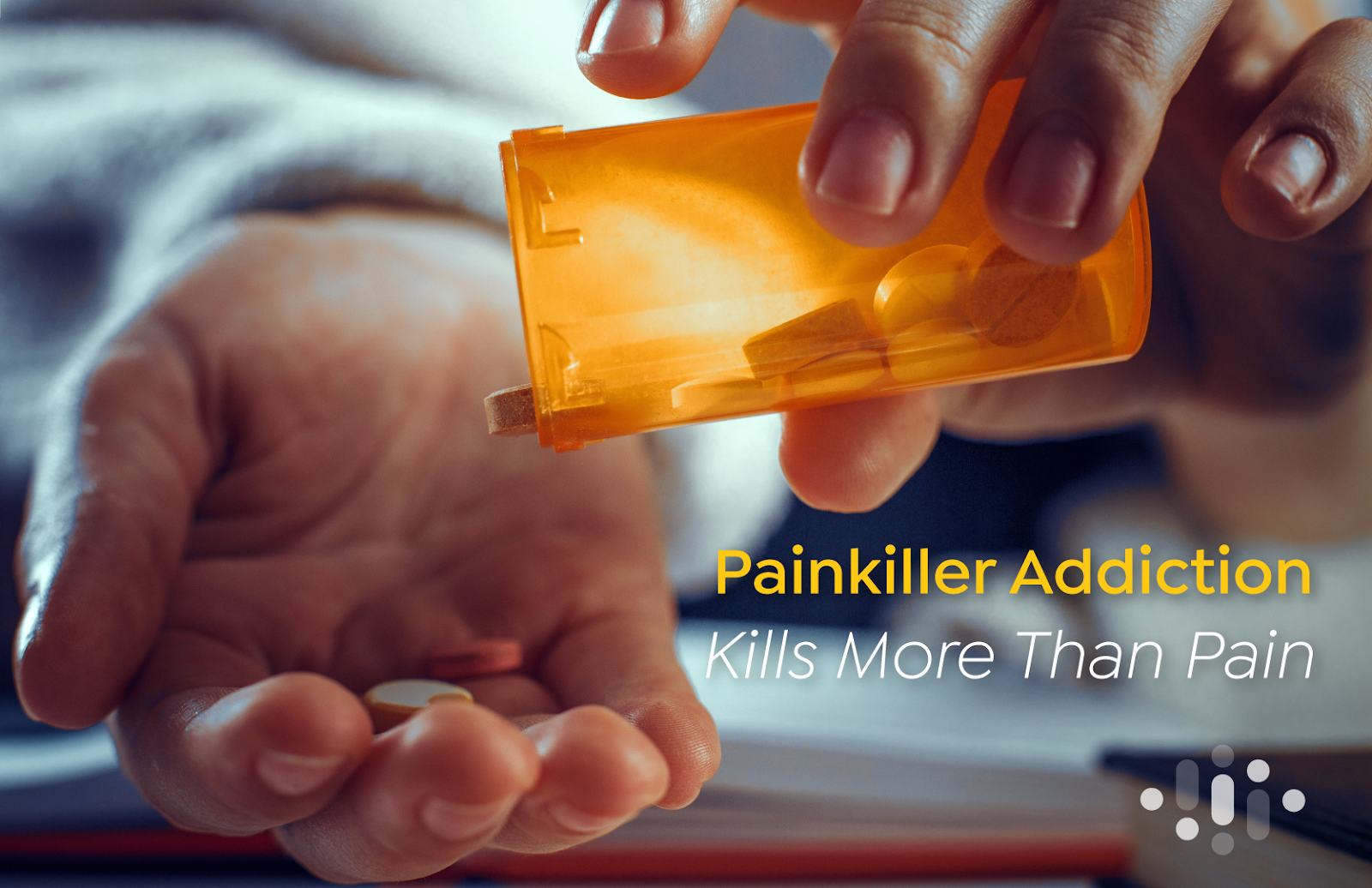Painkiller Addiction: They Kill More than Pain
Painkiller addiction is killing Americans. Over one-third of all Americans manage pain with prescription painkillers. Every day, sixty people die as a result of overdoses from opioids. In a year, that's 22,630 deaths in the U.S. Narcotic painkillers are highly addictive because they relieve pain and give a euphoric feeling that the user’s brain becomes addicted to. When taken as prescribed, painkillers are less likely to be a problem, but users still fall into painkiller addiction for a variety of reasons. Stepping Stones in Lincoln, Nebraska wants people to understand more about painkillers and addiction so they can avoid the dangers.
Are Opioids and Painkillers the Same?
It is common to be confused about what exactly constitutes as a painkiller. There are many technical and slang words used for painkillers. About 20% of people who go to the doctor for painkillers will be prescribed a narcotic or opioid, like morphine and codeine, which are natural products of opium and come from the poppy plant. But just because they are made from a pant, does not mean they are not powerful and dangerous. People should be careful with plant-based drugs just as they are with man-made drugs, of which there are many.
Semi-synthetic and full synthetic opioids include:
Heroin, a street drug
Hydrocodone with acetaminophen (Lorcet, Lortab, Vicodin)
Hydrocodone (Hysingla ER, Zohydro ER)
Oxycodone (OxyContin)
Oxycodone with acetaminophen (Percocet)
Oxycodone with aspirin (Percodan)
What is Dependency vs. Addiction?
A person can be physically dependent on a painkiller but not addicted. Painkiller addiction and dependency are not the same thing. Dependency is physical; addiction is a disease of the brain. If you are addicted, you will keep using the drug, even if it is causing you problems. Long-term use of painkillers can lead to physical dependence.
How Do I Know if I Have Painkiller Addiction?
Your healthcare provider will look for these symptoms if they think you have an opioid use disorder (OUD):
Use more than prescribed of the painkiller or use them longer than intended
Unable to control or cut down painkiller use
Spend lots of time finding drugs or recovering from use
Have a strong desire or urge to use
Use despite legal or social problems
Use while doing something dangerous, like driving
Use despite physical or mental problems
Become tolerant – need more of the drug or need to take it more often
Have withdrawal – physical symptoms when you try to stop
There are also levels of painkiller addiction which can escalate quickly. Your condition could be mild with two to three symptoms, moderate with four to five symptoms, or severe with six or more symptoms.
Call out: The most fatally abused drugs are legal and sitting in the medicine cabinet: opioid painkillers.
Painkillers mask the pain; they do not pretend to be a cure. More often than not, people find themselves taking higher and higher doses on painkillers — only to find that they cannot make it through the day without the drug or withdrawal. Symptoms of withdrawal can include:
Restlessness
Muscle and bone pain
Insomnia
Diarrhea and vomiting
Cold flashes with goosebumps (known as “cold turkey”)
Involuntary leg movements
Approximately 2 million Americans in 2015 had substance abuse disorders related to opioid painkiller misuse. One of the serious risks of opioids is shallow respiration—high doses can cause breathing to slow down to the point it stops and the user dies. Painkiller addiction is affecting multiple areas of people’s lives including work, family, and social life.
Safety Sensitive Work
Behind the wheel and at work, painkillers have risks. Especially for those involved in safety sensitive positions such as forklift drivers and crane operators. In high doses, painkillers can cause impairment, leading to drowsiness, lethargy, and even death. At Stepping Stones in Lincoln, Nebraska we offer safety-sensitive counseling services for those in safety sensitive positions, who also suffer from painkiller addiction and abuse.
Our Counselors
For individuals and families struggling with painkiller addiction, Stepping Stones in Lincoln offers counseling in a safe and welcoming environment. We understand that painkiller addiction is difficult to overcome and it can impact an individual’s life, as well as members of their family. We also offer co-occurring mental health counseling and many other services on our website steppingstoneslincoln.com.
Our licensed professional counselors will work with you, or with you and your family, to develop a person-centered treatment plan specific to your needs that incorporates healthy coping and problem-solving for painkiller addiction. Counseling is offered by appointment. To schedule a counseling appointment for painkiller addiction with Stepping Stones in Lincoln, Nebraska, please call (402) 488-6511.
Sources:
https://www.webmd.com/pain-management/features/painkiller-addiction-warning-signs#1
https://www.webmd.com/mental-health/addiction/painkillers-and-addiction-narcotic-abuse#1
https://www.nsc.org/home-safety/safety-topics/opioids/prescription-painkiller-risks

